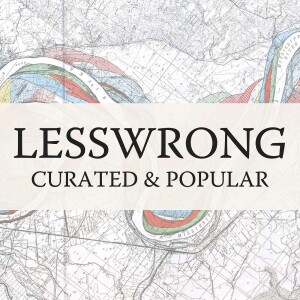
"AI as a science, and three obstacles to alignment strategies" by Nate Soares
 2023-10-30
2023-10-30
AI used to be a science. In the old days (back when AI didn't work very well), people were attempting to develop a working theory of cognition.
Those scientists didn’t succeed, and those days are behind us. For most people working in AI today and dividing up their work hours between tasks, gone is the ambition to understand minds. People working on mechanistic interpretability (and others attempting to build an empirical understanding of modern AIs) are laying an important foundation stone that could play a role in a future science of artificial minds, but on the whole, modern AI engineering is simply about constructing enormous networks of neurons and training them on enormous amounts of data, not about comprehending minds.
The bitter lesson has been taken to heart, by those at the forefront of the field; and although this lesson doesn't teach us that there's nothing to learn about how AI minds solve problems internally, it suggests that the fastest path to producing more powerful systems is likely to continue to be one that doesn’t shed much light on how those systems work.
Absent some sort of “science of artificial minds”, however, humanity’s prospects for aligning smarter-than-human AI seem to me to be quite dim.
Source:
https://www.lesswrong.com/posts/JcLhYQQADzTsAEaXd/ai-as-a-science-and-three-obstacles-to-alignment-strategies
Narrated for LessWrong by TYPE III AUDIO.
Share feedback on this narration.
[125+ Karma Post] ✓
More Episodes
 2024-05-28
2024-05-28
 2024-05-21
2024-05-21
 2024-05-21
2024-05-21
 2024-05-21
2024-05-21
 2024-05-12
2024-05-12
 2024-05-02
2024-05-02
 2024-05-01
2024-05-01
Create your
podcast in
minutes
- Full-featured podcast site
- Unlimited storage and bandwidth
- Comprehensive podcast stats
- Distribute to Apple Podcasts, Spotify, and more
- Make money with your podcast
It is Free
- Privacy Policy
- Cookie Policy
- Terms of Use
- Consent Preferences
- Copyright © 2015-2024 Podbean.com




